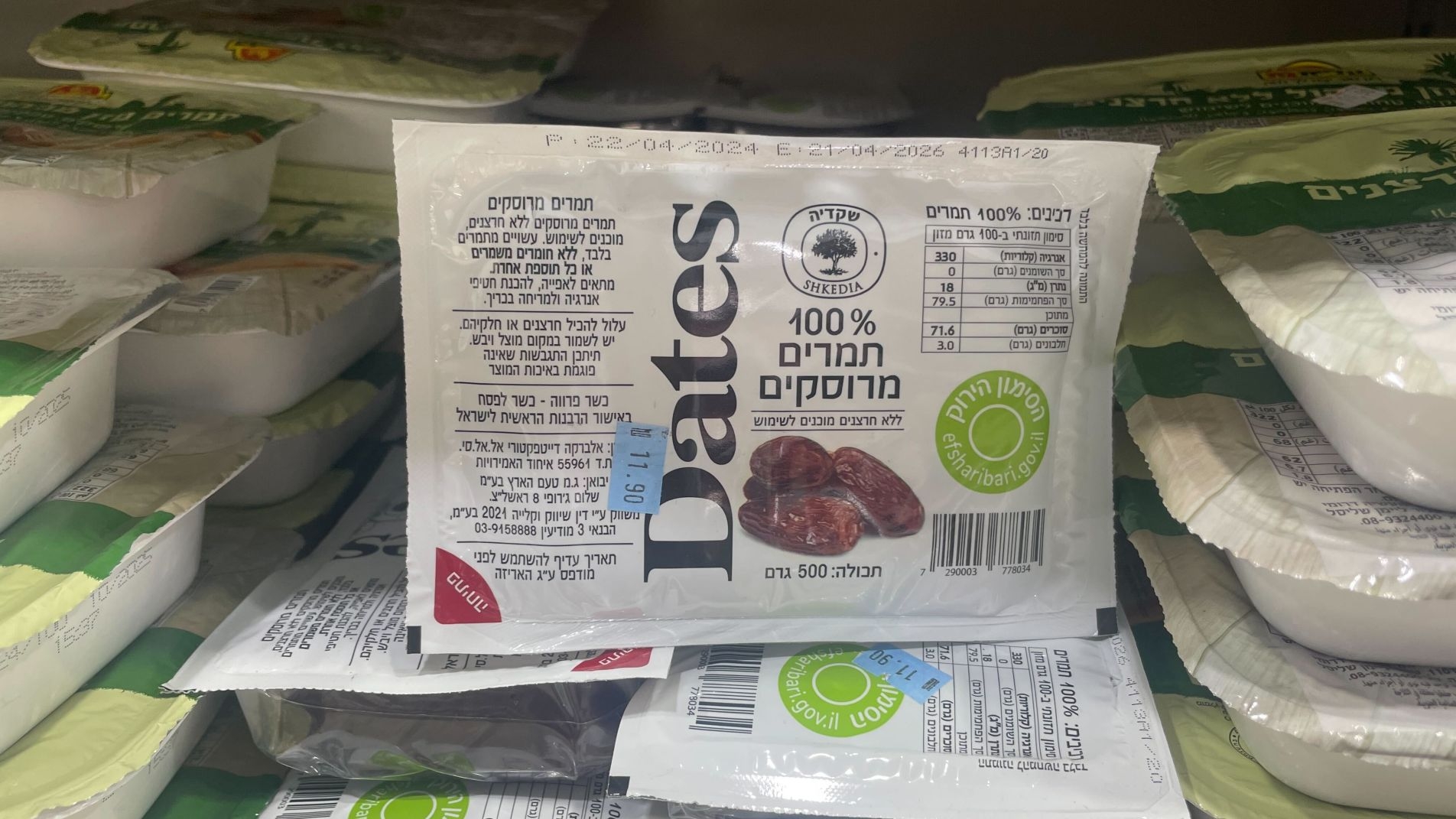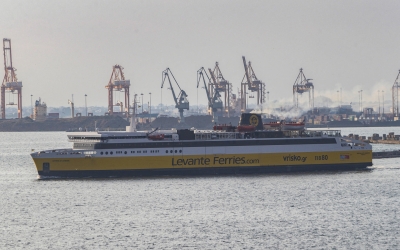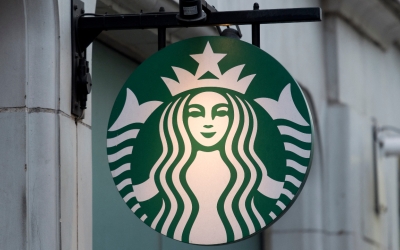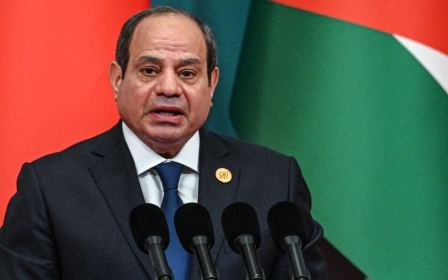Arab companies still trading kosher-certified food products to Israel

Hundreds of food products made by companies in Arab states have been certified as kosher and many are still being sold in Israel, according to the findings of an investigation published jointly by Middle East Eye and Arabic Post.
The investigation highlights enduring trade links between Israel and a number of regional countries, including the United Arab Emirates, Egypt, Jordan and Morocco since the start of the war in Gaza, even as Israel has faced international condemnation and calls for a trade boycott over accusations of genocide and the killing of more than 37,000 Palestinians.
According a database of kosher-certified products published by the Chief Rabbinate of Israel, new certificates have been approved for dozens of products manufactured in these countries since October last year.
MEE also found examples of kosher-certified products imported from Arab countries on sale on shelves in Israeli supermarkets and online.
The Chief Rabbinate of Israel is a religious institution that issues kosher certificates, indicating compliance with Jewish law, which are necessary for food products intended for sale in most Israeli shops and supermarkets.
New MEE newsletter: Jerusalem Dispatch
Sign up to get the latest insights and analysis on Israel-Palestine, alongside Turkey Unpacked and other MEE newsletters
Some companies contacted by MEE and Arabic Post denied exporting goods to Israel, but said their products may have found their way into Israeli markets via companies and distributors in third countries.
Others said their products were intended for Palestinian markets, although kosher certification is not required for products marketed only to Palestinians in Israel or the occupied territories.
Under Israeli food import laws the responsibility for obtaining kosher certifications lies with the importer.
And while the certifications are not necessarily indicative of recent trade, the volume of certificates approved for Arab products is indicative that the infrastructure for trade between Israel and regional countries remains in place.
The latest data published by Israel's Central Bureau of Statistics also provides insight into the extent of continuing trade between Israel and a number of Arab countries.
Imports from Egypt to Israel in May 2024 were valued at $25m - double the figure for the same month in 2023, though total imports for the first five months of the year were down slightly at $85.6m compared with 90.7m for the equivalent period a year previously.
Imports from the UAE for the first five months of the year were valued at nearly $1.2bn, down from $988m, while imports from Jordan were valued at $129.1m, down from $184m. The value of both countries' imports in May was higher than in May 2023. Imports from Morocco for the first five months of the year were valued at $7.4m, down from $8.6m.
Mahmoud Nawaja, national committee general coordinator for the Boycott, Divestment and Sanctions (BDS) movement, told MEE: "The trade growth between these Arab countries and Israel can only be considered as their involvement and complicity in Israeli crimes against Palestinians, and the genocide in Gaza specifically.
"It does not reflect the position of the Arab people, who have been calling for a complete boycott. These states are sustaining the Israeli colonial regime under the direction of the US."
Trade ties with Arab states
The database includes 35 Egyptian companies, 25 Moroccan companies, five Jordanian companies, four Emirati companies, and seven foreign companies trading with Israeli firms from production facilities in the UAE.
Around 442 food products have received kosher certifications. They include frozen or canned vegetables and fruits, oils, tahini, sugar, apricots, tuna, noodles, peanuts and juice.
Egypt and Jordan, which border Israel and the occupied Palestinian territories, have well established trade relationships with Israel built on long-standing diplomatic relations between the countries.
Trade from the UAE and Morocco to Israel has grown since the countries normalised diplomatic relations with Israel through the 2020 Abraham Accords.
According to the database, a small number of products from companies in Tunisia and Saudi Arabia are also currently certified as kosher. Neither country has formal diplomatic or trade relations with Israel.
The Israeli data also provides insight into the strength of recent trade ties between Israel and Turkey, with 2,772 food products produced by 290 Turkish companies registered as kosher.
The Turkish government last month stopped all trade with Israel in response to the war in Gaza, though MEE found some Turkish products still on sale this week in a supermarket in Acre, northern Israel.
A spokesperson for the Turkish Ministry of Trade told MEE: “All trade between Turkey and Israel has been halted as of 2 May. It includes food exports from Turkey to Israel.”
A Turkish businessman with a large trade volume with Israel told MEE that companies that had traded with Israel had already suffered significant losses because of the ban.
“There are attempts by some companies to use third countries to re-export these products, and the Israeli authorities so far have not blocked Turkish goods arriving from countries like Greece and Azerbaijan,” he said.
The re-routing of Turkish products via Greece apprears to be confirmed by Turkish trade data, which shows exports to Israel down by 99 percent compared to a year ago, while exports to Greece have risen by 70 percent.
While Israeli data only recorded a fall of around two-thirds in value of Turkish imports, Turkish businessmen told MEE that products which originated in Turkey were likely still being logged in Israel as Turkish imports.
Emirati dates, Egyptian molokhia
Major companies in the UAE whose goods have been certified as kosher include the Al Barakah Dates Factory and Hunter Foods, both based in Dubai.
Thirty-eight Al Barakah products are currently certified, including 18 certified in February, and MEE found Al Barakah's products on sale in Israeli supermarkets.
Eighteen products manufactured by Hunter Foods, which produces crisps and other snacks, have been certified, including some certified in November last year.
Neither company had responded to requests for comment at the time of publication.
Foreign companies operating in the UAE with products certified as kosher include Ahmad Tea, a UK-based tea company that has a major factory in Ras Al Khaimah.
A spokesperson for Ahmad Teas said the company did not have an office or staff in Israel nor any operations in the country.
The spokesperson said: “Our products are manufactured in India and the United Arab Emirates and distributed in over 100 countries.
“This includes dozens of European, Asian Pacific, and African countries, either through our direct distribution network or external distributors who transport our products to markets that may or may not be within our direct control.”
Egyptian companies accounted for 206 kosher-certified food products, including dozens certified since October last year.
They include the Faragalla Group, one of Egypt’s largest food production firms, whose products include juice, frozen okra and molokhia.
Forty products manufactured by Agro Green, including frozen strawberries, artichokes, beans, and okra, are also certified for sale in Israel.
Neither Faragalla nor Agro Green responded to requests for comment.
Moroccan companies producing kosher-certified products include Atlas Olive Oils, one of the country’s oldest companies, fish producer Talekroup, and sugar producer Consumar. None responded to requests for comment.
Another Moroccan company listed in the database, seafood producer Rio de Oro, is based in the port of Dakhla in the disputed territory of Western Sahara.
It said it had halted food exports to Israel because of the war in Gaza. It said its last transaction with an Israeli company - through an intermediary in Lithuania - was in January 2023. However, the kosher certification data shows that one of its products was registered in December 2023.
Thousands of Moroccans have held regular pro-Palestine demonstrations across the kingdom, demanding the government cut ties with Israel.
Some of the companies approached by MEE and Arabic Post said their products were intended for sale in Palestinian markets in the occupied West Bank and inside Israel.
But Palestinian importers based in Israel or the occupied territories are not required to obtain kosher certification for products sold exclusively in Palestinian markets.
Palestinian merchant Tariq Saqf Al-Hait, a member of the general body of the Chamber of Commerce and Industry in Nablus, said some Palestinian food producers nonetheless obtained kosher certification in order to also supply goods to the Israeli market.
He cited “tahini and sweets factories” whose products are supplied to the Israeli market or exported abroad.
‘The laws of the occupier’
In one case, Srour, a Jordanian company, whose halva and tahini products were issued kosher certificates in February, denied exporting goods to Israeli markets and said instead that its products were being sold in “historic Palestine”.
“We are proud that our products are on their tables as an alternative to the products of the occupying enemy,” it said, but added that its products had been certified as kosher because they were “subject to the laws of the occupier”.
Srour said the importer, the Moati Hussein Sons Limited Company, had required the certifications and said it had agreed “out of ignorance”, and did not have the right to tell its customers who they could or could not sell to.
But, pressed about the sale of its products in Israeli markets, it said: “We will ask our agent there not to sell them to them, and we cannot do more than that.”
MEE approached Acre-based Moati Hussein Sons for comment but had not received a response at the time of publication.
Omar Jasser, a Palestinian businessman in Israel, said that all imported products required a kosher certificate to be legally sold in Israeli markets.
Palestinian citizens of Israel were also required to adhere to import and export procedures, and marketing, tax and customs regulations, he said, and direct trade was only allowed with countries with formal diplomatic relations with Israel.
But Jasser said the vast majority of goods imported by Palestinian citizens of Israel were intended for sale to Palestinians.
“If imported products are for sale only in the Arab market inside Israel or Palestinian markets, then it is not obligatory to obtain a kosher certificate, provided that they are not marketed and sold in Israeli markets and shopping networks,” said Jasser.
Saudi sugar, Tunisian tuna
The data also included the names of two companies, from Tunisia and Saudi Arabia, neither of which have formal diplomatic or trade relations with Israel.
A certificate for white sugar imports names a Saudi firm, Durrah, as the manufacturer. The certificate is dated 17 July 2023, and expires on 17 July 2024.
Accompanying notes state that the sugar is for use before Passover only, and that the country of origin and the manufacturer’s name must appear on the original packaging.
The company did not respond to requests for comment.
ManarThon, a Tunisian producer of tuna and sardines whose products were found on sale in Israeli online stores, told MEE that the company respected Tunisian trade law and "has never carried out any commercial transaction with Israel".
It said: "If our products have reached the Israeli market, this could be the result of indirect import operations or through third parties over which we have no control, given that our products are exported to more than 20 countries."
The strength of continuing trade between Israel and Arab states since the start of the war in Gaza has been highlighted by the Abraham Accords Peace Institute, a US-based organisation that promotes closer diplomatic and trade links, which said in its 2023 annual report that the war has had a lesser impact on Israel’s trade with the region than its trade with the rest of the world.
When compared to Israel’s world trade, which dropped 18 percent in the last three months of 2023, trade with Arab countries dropped by only four percent, from $937m to $903m.
In 2023, trade between Israel and the UAE constituted about three-quarters of Israel’s dealings with Arab countries. And while the Israeli-Emirati trade was down 14 percent in the fourth quarter of 2023, it saw a 17 percent year-on-year growth.
On 10 October, Emirati trade minister Thani al Zeyoudi told reporters, commenting on UAE-Israel economic ties in light of the war: “We don’t mix the economy and trade with politics.”
In Jordan, trade decreased by 16 percent in 2023, with the last quarter of the year seeing a 42 percent decrease compared with the fourth quarter of 2022.
However, according to the Abraham Accords Peace Institute, the drop appears to be unrelated to the war and was largely because of an increase in Israeli demand for fresh produce in late 2022.
Israel’s trade with Egypt grew by 56 percent in 2023, and was up 168 percent year-on-year in the fourth quarter, according to the Abraham Accords Peace Institute report. Meanwhile, Israel’s trade with Morocco more than doubled in 2023 compared with 2022.
“These numbers demonstrate the resilience of trade ties between the countries despite the Israel-Hamas war,” the institute said.
MEE contacted the trade ministries of all the Arab countries with companies producing products certified as kosher but none responded to requests for comment.
- Lubna Masarwa in Jerusalem, Ragip Soylu in Ankara, and Elodie Farge in Montpellier, France, contributed to this report.
Middle East Eye delivers independent and unrivalled coverage and analysis of the Middle East, North Africa and beyond. To learn more about republishing this content and the associated fees, please fill out this form. More about MEE can be found here.






